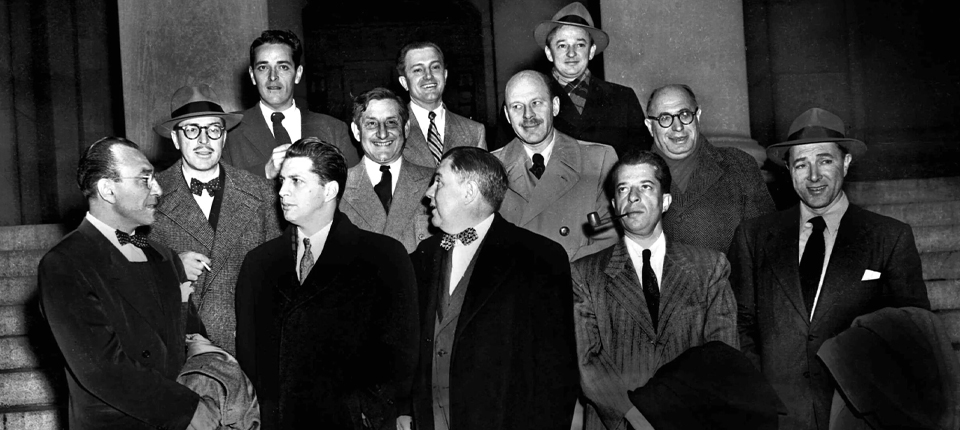Lit Hub Daily: November 24, 2025
THE BEST OF THE LITERARY INTERNET

TODAY: In 1947, a group of writers, producers and directors that became known as the Hollywood 10 was cited for contempt of Congress for refusing to answer questions about alleged Communist influence in the movie industry.
- The bracket finals are here! “Cat Person” and Joyce Carol Oates square off in the fight to officially be named the most iconic moment of the literary internet. | Lit Hub
- John Irving talks to Wayne Catan about wrestling, coming-of-age, and his new book, Queen Esther. | Lit Hub In Conversation
- “Plenty of vociferous readers can sustain themselves by library card alone, but the coveting of the physical object of the codex is its own thing.” In praise of bibliomania. | Lit Hub History
- What the persistent human desire for transformation reveals to us about ourselves. | Lit Hub Science
- Cecily Parks examines the ceremony and intimacy of Edna St. Vincent Millay’s “Counting-Out Rhyme.” | Lit Hub Criticism
- On language as resistance and the role of neologisms and idioms in Croatia’s linguistic landscape. | Lit Hub Politics
- Joseph Luzzi chronicles a Renaissance-Era orphanage in Florence: “The surge of their salvaged lives coursed through me like an electric current.” | Lit Hub History
- “Aged eight, I like the sensation of my upper body dangling free, the contact of my knees hooked over metal.” Read from Gabriella Zalapì’s novel Ilaria, or The Conquest of Disobedience, translated by Adriana Hunter. | Lit Hub Fiction
- Kevin Lozano explores the legacy of Malcolm Cowley, the editor who helped make the American literary canon and who “believe[d] so earnestly and powerfully in the work of his peers that he spent his life making sure they would not be forgotten.” | The New Yorker
- “Despite clarifying posts noting the warning was a joke, some people took it seriously.” How a physics joke gone wrong led to the creation of the emoji. | Ars Technica
- David Vichnar surveys necromodernism in contemporary American novels: “Necromodernism neither celebrates the new nor nostalgically mourns the old, inhabiting instead a space where cultural memory, media saturation, and infrastructural collapse converge into textual practice.” | 3:AM
- “They are violent, though neither produces what one would term loud comics, in the boisterous sense.” Claire Napier places Julia Gfrörer’s work in conversation with Moto Hagio’s. | The Comics Journal
- Benjamin Noys explains why “accelerationism, if dead, remains a haunting specter presiding over the cultural landscape.” | e-flux
- Why small presses, not AI models, are the future of publishing. | The Bookseller
Article continues after advertisement



















